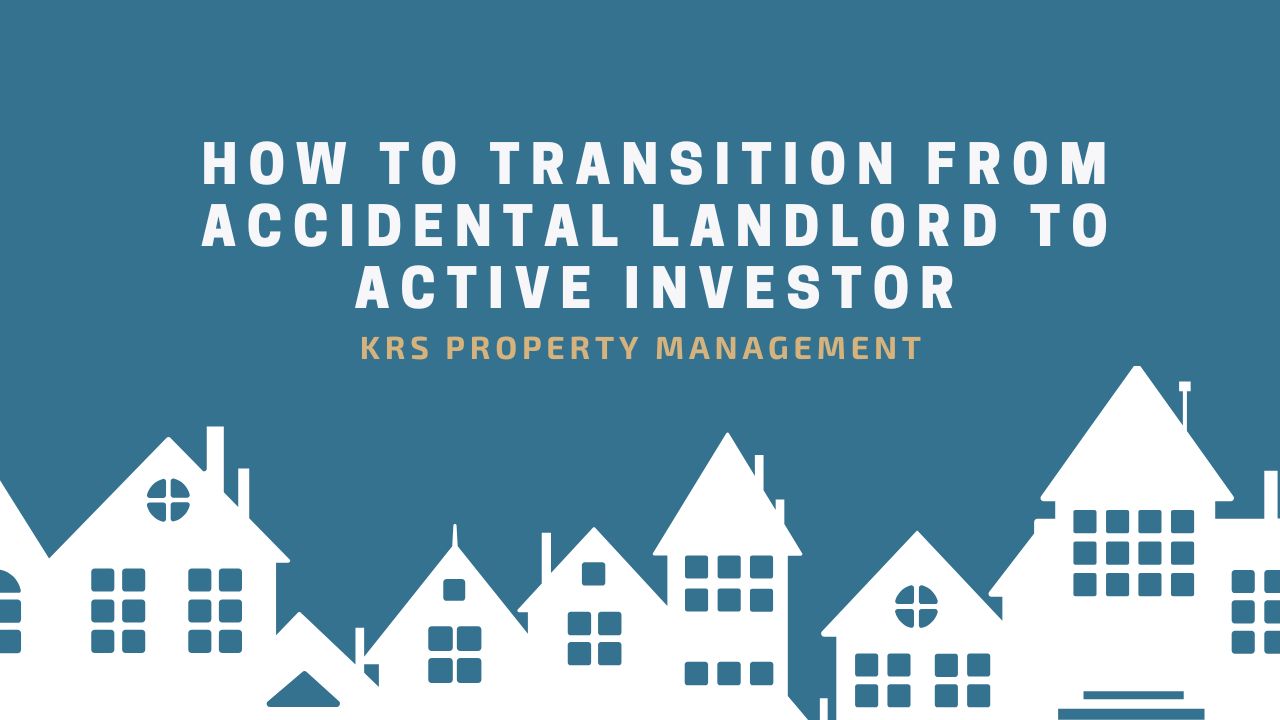
Key Takeaways
Shift From Reactive to Strategic: Move from handling problems as they arise to planning for long-term goals. Treat your rentals like a business with budgeting, forecasting, and systems in place.
Know Your Market and Optimize Your Assets: Understand local rental trends, tenant preferences, and property types. Maximize the performance of your current properties before expanding to new investments.
Grow Intentionally and Responsibly: Plan your portfolio expansion with diversification, financing strategies, and legal/tax tools. Scale gradually, monitor performance, and adjust strategies to protect and grow your wealth.
Many people become landlords by accident. Maybe you inherited a property, moved for work, or bought a home you never intended to rent out. Suddenly, you’re juggling tenants, maintenance, and finances without a clear plan.
But what if you could turn this unexpected role into a strategic opportunity? In this guide from KRS Holdings, we’ll go over everything you need to know to transition from an accidental landlord to a confident, active real estate investor.
Understanding Your Role
The biggest change is mindset. Accidental landlords often react to problems as they arise: repair calls, late rent, or tenant turnover.
Active investors anticipate and plan. Instead of asking, “How do I get through this month?” start asking, “What’s my long-term goal?” Do you want steady monthly income, appreciation for retirement, or to grow into multi-property ownership?
Clear goals guide every decision, from whether to renovate to how to structure financing. Treat your rental like a business. That means budgeting, forecasting, and creating systems. Even if you own only one home now, an investor’s mindset prepares you for growth.
Understand Your Market
Every city and county has its own dynamics. Richmond’s revitalizing neighborhoods attract young professionals. Northern Virginia’s demand is fueled by federal jobs and proximity to D.C. Hampton Roads benefits from military bases and shipping.
.jpg)
In Charlottesville, student rentals are strong, while Fredericksburg and Lynchburg see steady demand from families and retirees. Raleigh continues to grow as a tech hub. Understanding these local market trends is essential.
Study rental rates, tenant preferences, property taxes, and landlord-tenant laws. For instance, a condo near George Mason University may need durable finishes for student renters, while a Lynchburg single-family home may do better with upgrades that appeal to long-term families.
An active investor keeps up with these shifts, adjusting strategies before small issues become costly mistakes.
Optimize What You Already Own
Before rushing to buy more property, maximize the one you already have. Many accidental landlords leave money on the table by underpricing rent or neglecting improvements.
Compare your rent to similar properties nearby. If you’re below market, consider modest upgrades like fresh paint, energy-efficient appliances, or updated flooring. These often justify higher rent and attract more reliable tenants.
Review expenses carefully. Old HVAC systems, poor insulation, or leaky plumbing inflate costs. Preventative maintenance is usually cheaper than emergency repairs.
Also, watch your vacancy rate. In Northern Virginia or Hampton Roads, where demand is high, a month-long vacancy could mean you’re under-marketing or slow to turn units. Even one lost month can erase much of your yearly profit.

Finally, check your financing. Refinancing your mortgage at a lower rate or tapping equity can improve cash flow and fund future investments.
Build Systems and Processes
Investors don’t rely on guesswork. Systems help you manage consistently and prepare to scale. Create checklists for move-ins, inspections, lease renewals, and turnovers.
Standardize tenant screening with income verification, credit checks, and rental history. Keep seasonal maintenance schedules: HVAC servicing before summer, winterization before freezing months in Northern Virginia.
On the financial side, track income, expenses, and reserves. Set aside funds for capital items like roofs or water heaters so emergencies don’t derail your budget. With strong systems, you gain control and peace of mind.
Plan for Growth
Once your current rental is running smoothly, it may be time to think about expanding your portfolio. Growth strategies differ across KRS Holdings’ markets. In Richmond, investors often target transitional neighborhoods with strong potential for appreciation.
In Hampton Roads, properties near military bases benefit from steady rental demand. In Raleigh, multifamily units close to tech corridors tend to deliver solid returns.
Choose the property type that aligns with your goals, single-family homes for long-term stability, or duplexes and small multifamily buildings for higher cash flow. Financing options range from traditional mortgages and equity loans to partnerships.

The key is to make each purchase part of a long-term strategy. Diversification can help reduce risk. For example, owning properties in both Richmond and Northern Virginia allows you to balance exposure across different local economies and rental markets.
Use Tax and Legal Tools
Successful investors know how to maximize financial benefits. Rental properties allow you to deduct mortgage interest, property taxes, insurance, repairs, and depreciation. Understanding these rules can save thousands annually.
Entity structures, like LLCs, protect personal assets and may offer tax advantages. A 1031 exchange lets you defer capital gains when selling one property to buy another.
Local programs in Virginia and North Carolina may even provide tax credits for energy efficiency or historic renovation. Work with a tax advisor or attorney familiar with real estate in your region. The upfront cost often pays for itself many times over.
Scale Responsibly
It’s tempting to buy quickly once you see potential. But growing too fast without systems can cause stress, poor tenant experiences, or financial strain. Add properties gradually, evaluate performance, and adjust strategy.
Monitor infrastructure projects, school zones, and job centers that drive demand in your city. Stay alert to local ordinance changes that affect landlords.
Leverage economies of scale by clustering properties in areas where you can share property maintenance and vendors. Responsible scaling allows you to build a sustainable rental portfolio rather than one that drains resources.
Keep Reviewing and Adjusting
Markets shift, and so should your strategy. Review your portfolio quarterly. Ask: Is each property meeting income goals? Are rents competitive? Are maintenance costs rising?
If a property consistently underperforms, consider renovating, raising rent, or even selling to reinvest elsewhere. Active investors treat their portfolio like a living asset, always evolving.
Conclusion
Owning rental property in Virginia or North Carolina doesn’t have to stop at being an accidental landlord. By redefining your role, optimizing what you own, building systems, and leaning on expert property management, you can transition into an active investor.
The difference is control and intentionality. Instead of reacting to problems, you’ll set goals, manage strategically, and grow wealth for the future. If you’re ready to make that shift, KRS Holdings is here to help.
With deep expertise across Richmond, Northern Virginia, Hampton Roads, and beyond, we provide the tools, insights, and management services that empower property owners to succeed. Start today and watch your rental evolve into a true wealth-building asset.






